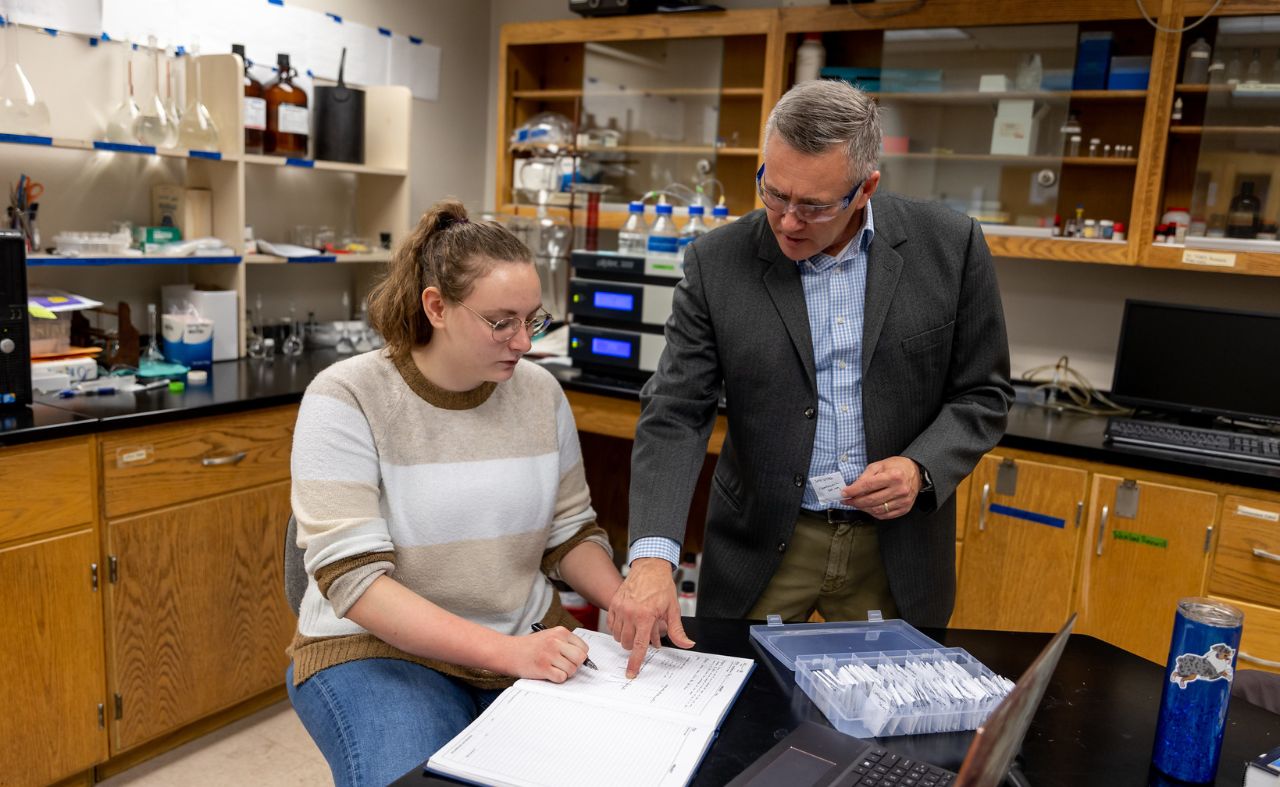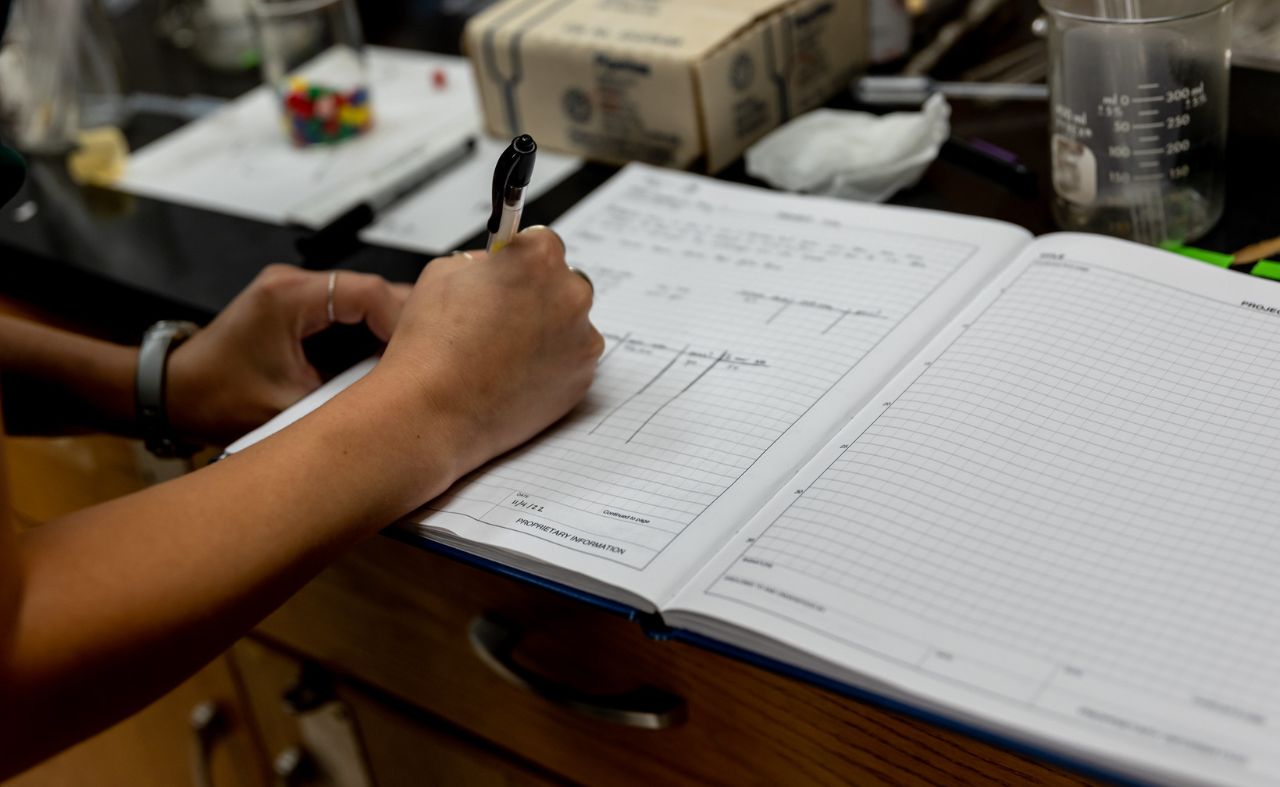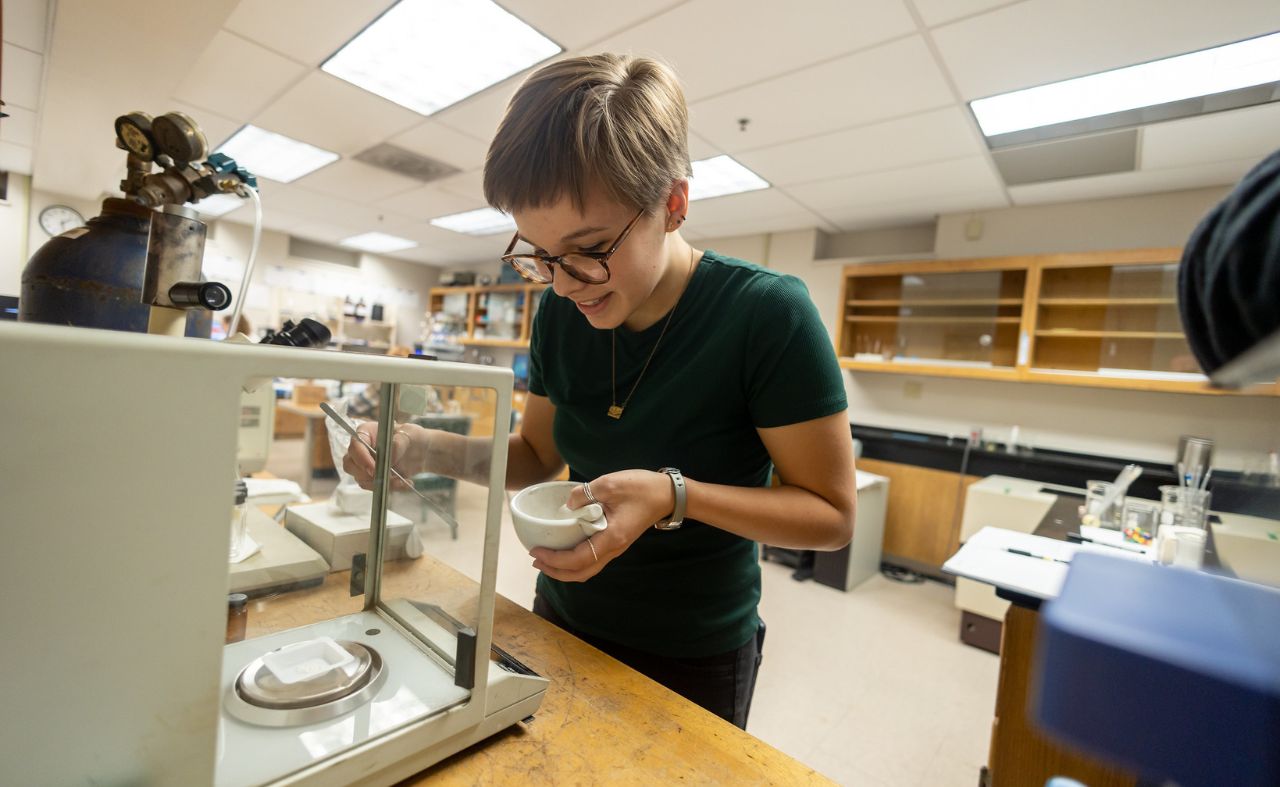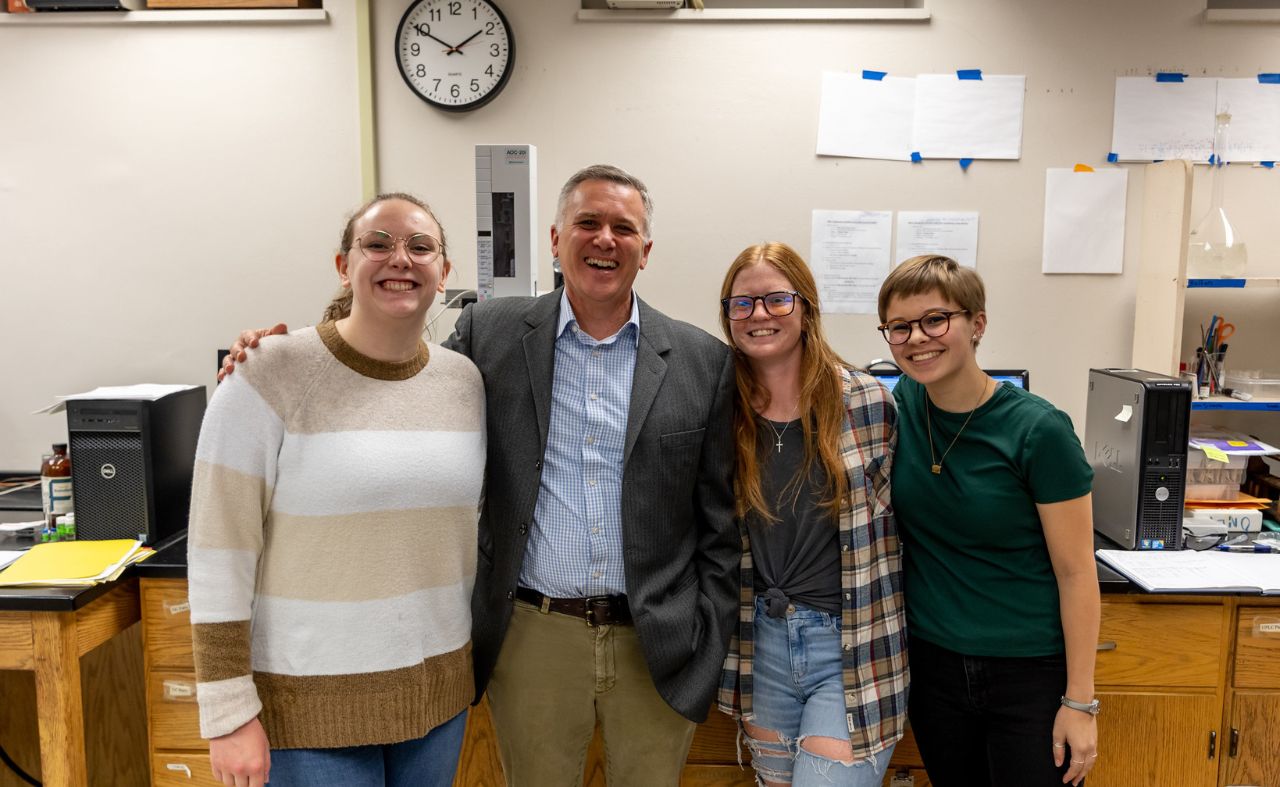
Rodney Austin, PhD, professor of chemistry, exhibits purposeful learning by conducting research and projects outside of the classroom which help students gain experience, apply classroom knowledge, serve the community, and impact the world.
 One of Austin’s ongoing efforts is the Distributed Analytical Pharmaceutical Laboratory. In partnership with the University of Notre Dame, Austin works with his students every Friday to test pharmaceuticals for the correct dosage. For the past several years Austin and his students have tested levofloxacin, an antibiotic, and are also now testing for ciprofloxacin. Notre Dame and Geneva are sent medication from low and middle-income countries through Chemists Without Borders. These tests detect low-quality medicine to help indicate which batches should or should not be distributed publicly. Many countries lack the resources and infrastructure to do this regularly or at all, leaving their citizens vulnerable to unsafe or low-quality medication.
One of Austin’s ongoing efforts is the Distributed Analytical Pharmaceutical Laboratory. In partnership with the University of Notre Dame, Austin works with his students every Friday to test pharmaceuticals for the correct dosage. For the past several years Austin and his students have tested levofloxacin, an antibiotic, and are also now testing for ciprofloxacin. Notre Dame and Geneva are sent medication from low and middle-income countries through Chemists Without Borders. These tests detect low-quality medicine to help indicate which batches should or should not be distributed publicly. Many countries lack the resources and infrastructure to do this regularly or at all, leaving their citizens vulnerable to unsafe or low-quality medication.
“In Jeremiah 29:7, the prophet encourages the people to live out their vocations even as they await captivity. He counsels them even as they are displaced to Babylon to ‘seek the peace and prosperity of the city …. if [the city] prospers, you too will prosper.’ He practically tells them to take jobs, build houses, and create beauty in their new country. I have found this verse helpful as I think about my vocation of teaching chemistry.”
Much of Austin’s work outside the classroom can be seen closer to home, right here in Beaver Falls. by Austin and his students to test for the presence of disinfection by-products in our city’s water. The Beaver Falls Municipal Authority conducts this testing every other week, and Austin fills in by testing on the off weeks. Students are serving their city while gaining practical skills and experience that set them up for success post-graduation. Austin shared about one student who worked on this project and then went on to work for the water authority in Washington D.C. Having applied knowledge and real-world experience helps our students become top picks for many employers.
“Through these projects, my students and I use our love of chemistry to address hurts and needs in the world.”
 While much of Austin’s time is spent in class and working on tangible projects to better the global community, Austin also has a deep commitment to research and excellence in teaching. Purposeful learning is not only the mission behind the teaching and the outcome of the teaching, but also the method of teaching.
While much of Austin’s time is spent in class and working on tangible projects to better the global community, Austin also has a deep commitment to research and excellence in teaching. Purposeful learning is not only the mission behind the teaching and the outcome of the teaching, but also the method of teaching.
“My work in this area focuses on improving student learning in the chemistry classroom using evidence-based approaches. My research in this area shows that students retain information better in an active learning, or POGIL, setting as opposed to lecture or other methods.”
POGIL, or Process Oriented Guided Inquiry Learning, is an educational tactic to teach through active learning by conducting classes in small teams. Unlike group projects, these groups are structured, with each person having a real-world position that they will likely have working in chemistry or other STEM fields. Austin conducts many of his classes in this format, believing this is a more effective way for students to learn and retain information. In these teams, Austin provides problem-solving opportunities and management experience, and will often present incorrect information intentionally so teams must identify and think through issues as they would in a job.
Austin collected data over the past few years by conducting a conceptual inventory administered in his CHM 317 Biochemisty I class. A questionnaire covering three main concepts was given to students on the first day of class, and then again on the last day of class. It was then administered in CHM 318 the following spring. The results confirmed what other studies and Austin’s hypothesis claimed: Students retain information at a much higher rate when active learning and POGIL are used as opposed to primarily lecture. For this class, Austin used small team activities for 70% of the classroom instruction.
“Active learning helps students increase achievement and retention because active learning fosters information processing and problem-solving skills while developing essential teamwork and interpersonal communication skills.”
 Teaching students to think constructively, be creative, communicate effectively, and act courageously, requires faculty who are continuously learning, seeking truth, and displaying purpose in every aspect of their instruction.
Teaching students to think constructively, be creative, communicate effectively, and act courageously, requires faculty who are continuously learning, seeking truth, and displaying purpose in every aspect of their instruction.
Request Information
Learn more about Geneva College.
Have questions? Call us at 724-847-6505.

 Online Course Login
Online Course Login